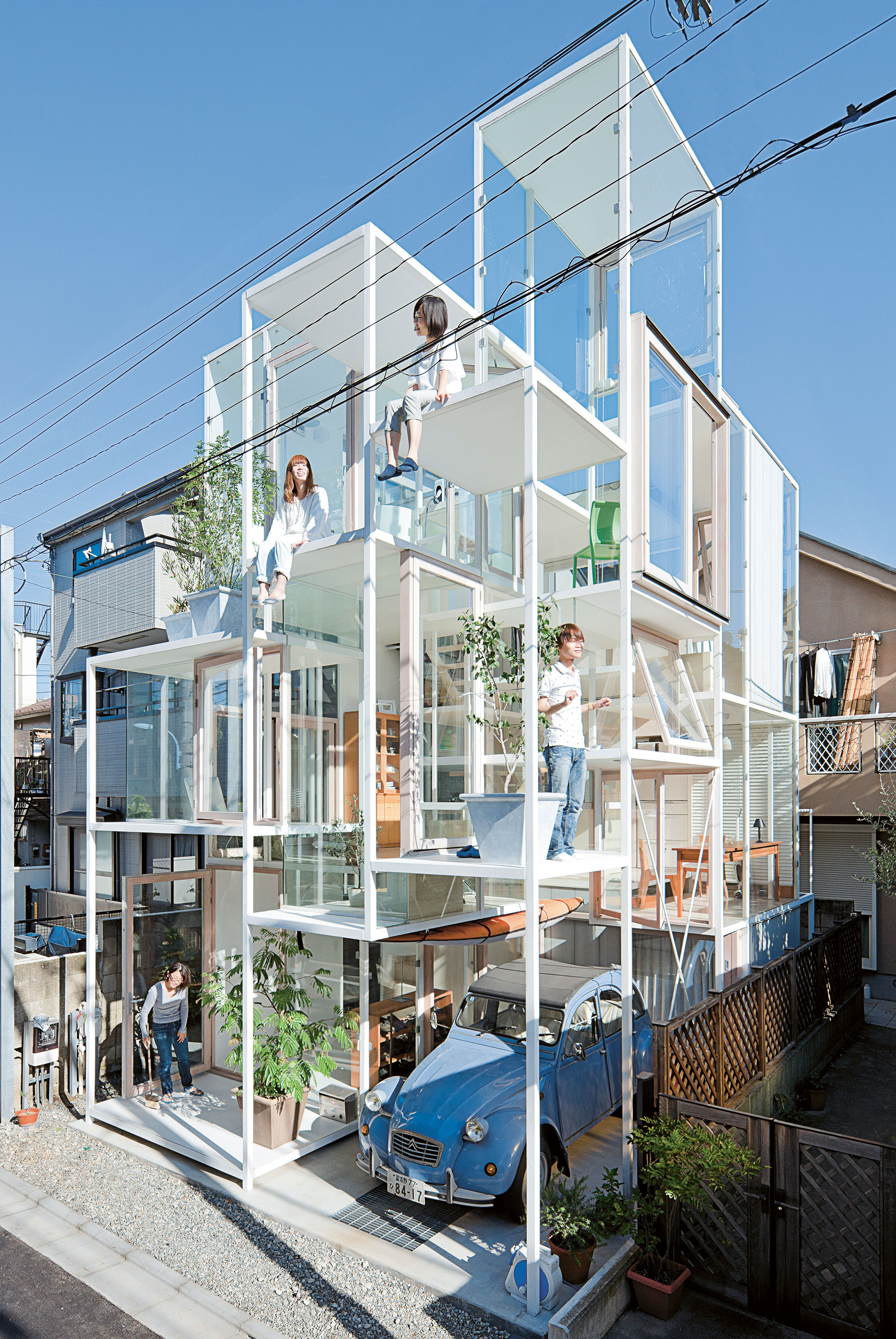Table Of Content

After the military shogunate system was overturned in the late 19th century, the house became the Yokois’ private residence and went through several renovations, according to Yokoi and her husband, Akira. The last family member to live there was Akira’s mother, who died around 1988. The couple moved to California in the late 1960s, says Hori, where Akira worked as an executive for Matsushita Panasonic, the parent company of Panasonic. They visited the house regularly and kept it maintained, with the idea of retiring there someday.That plan faded, however, and eventually, he adds, the upkeep became a chore. The journey took nearly eight years of negotiations, bureaucratic wrangling and skilled craftsmanship to dismantle, reassemble and, in some cases, re-create the 3,000-square-foot house and gardens. And starting Saturday, visitors can finally tour the compound, which will be open daily from noon to 4 p.m.
Try WAGYUMAFIA's Famous Japanese Wagyu Sando at Parlor & Yard This Weekend - Austin Chronicle
Try WAGYUMAFIA's Famous Japanese Wagyu Sando at Parlor & Yard This Weekend.
Posted: Fri, 26 Apr 2024 18:25:49 GMT [source]
Tornadoes leave trail of destruction as 4 injured, hundreds of homes damaged

Wait until everyone is seated before beginning the meal and use the phrase “itadakimasu” to express gratitude before starting. At the end of the meal, say “gochisousama deshita” to show appreciation for the delicious food and the host’s efforts. Bringing a small gift, known as “temiyage,” is another way to show gratitude to the host.
Japanese Phrases for Home
U of I Japan House hosting Spring Open House this weekend - wcia.com
U of I Japan House hosting Spring Open House this weekend.
Posted: Wed, 17 Apr 2024 07:00:00 GMT [source]
It can be something simple like a box of sweets or a small token from your own culture. Presenting the gift with both hands and expressing your appreciation adds a personal touch to the gesture. Upon entering a Japanese home, it is customary to remove your shoes at the entrance and wear the provided slippers. This not only keeps the home clean but also demonstrates your consideration for the host’s property. It’s essential to pay attention to the length and intonation of each syllable when pronouncing “ie” in Japanese.
Common Japanese Home Expressions
Aso, 83, served as deputy prime minister and finance minister under Abe and is now vice president of the Japanese Liberal Democratic Party and considered a kingmaker in the country. His trip comes amid growing concern in Japan over the impact of a possible Trump victory on the country's trade relations and security ties with the U.S. The house was built in 1953 and given to the New York Metropolitan Museum of Art.
We can usually tell pretty fast if this contractor is really skilled and organized or not. A good local contractor selects and works with the best sub contractors to oversee site preparation, roads, utilities, concrete work and sometime roofing and perhaps any cabinetry we don’t make ourselves. We have no special skills in concrete work, nor in electrical or plumbing, or site preparation. So we try to limit our involvement to those things that require our special skills, equipment or materials. Any task not requiring those things can be done by a skilled local contractor probably as well as we could, only a lot cheaper, and probably faster too. It's also worth noting that local people don't need to be paid per diem and travel expenses.
Designed by award- winning interior designer, Ryu Kosaka, the Salon combines a tranquil modern space with multi-purpose functionality that can host a wide range of programs. Japanese culture places great importance on proper etiquette, especially when visiting someone’s home. By adhering to the traditional customs and practices, you can show respect and appreciation for the host and their home.
Big cheap houses often haven’t had much time spent in their detailing, and they just end up being cavernous, bland, and soulless places. For this reason, we recommend building the smallest house that will provide the spaces you require. Smaller, meticulously done houses are what most people come to us for. Our goal is to merge the quality and feeling of traditional Japanese architecture with the basic comforts we’ve all come to expect in a modern home.
How to Say “House” in Japanese: Formal and Informal Ways
Inside the gatehouse, a large courtyard provided space for weddings, funerals and celebrations. Farmers and merchants entered the shōya house through one entrance, to measure and store their rice, pay their taxes and try to collect funds for other provisions. These rooms had floors made from hard-packed earth, and rustic beams hand-hewn from pine.
Practice Saying “House” in Japanese
Below we will leave a list of words about house in Japanese, including how to say apartments, mansions, shacks and other types of housing. Over the past several years, Washington has built a series of multilateral security arrangements like these in the Asia-Pacific region. Although U.S. officials claim that the recent mobilization of allies and partners is not aimed at China, don’t believe it. Indeed, Mr. Kishida emphasized in a speech to Congress on April 11 that China presents “the greatest strategic challenge” both to Japan and to the international community. On Tuesday, Japanese Foreign Minister Yoko Kamikawa declined to comment on Aso’s trip, saying “the government is not involved and it’s his personal activity” as a lawmaker.
Learning these vocabulary words will not only help you to express different aspects of a house in Japanese but also to deepen your cultural understanding. For instance, using “ya” instead of “ie” might imply a more personal connection to the concept of home. With this simple vocabulary under your belt, you’re on your way to improving your understanding of Japanese language and culture. “Uchi” (うち) is used for one’s own home, “katei” (家庭) for a household or family, and “ie” (家) for the general term. If you want to describe your house in Japanese, you'll need the following list, that shows you the most common words; you'll notice that some words are similar to japanese but they're very different.
While common daily greetings like “konnichiha” or “konbanwa” are polite, it is more appropriate to say “ojamashimasu” when entering someone’s house for the first time. This greeting, which translates as “Sorry to bother you,” serves as a respectful acknowledgment of the host’s hospitality. In Japanese culture, the family structure and home are highly valued. There are common expressions and greetings used within a Japanese home. It’s worth noting that these greetings can also be used in places that feel like home, even away from one’s actual house.
In traditional Japanese homes,almost every room opens to the outdoor garden, due to the wraparound veranda,or engawa, that serves as primaryhallway to navigate the home. While modern homes vary greatly, a consistency throughoutJapanese architecture is the idea of “form following function,” making houseshighly efficient without requiring as much space as typical Western homes. We saw a gap in the literature about Japanese architecture that addressed how it was done, so we decided we needed to write a useful book about the process of designing and building a Japanese house. Most of the species of wood we use are not available at building supply yards.
One tricky thing about this phrase is that it shouldn’t be used for the entirety of your stay within someone’s home, even if you are constantly meeting new faces. For more information about Japanese language and culture, you can follow Japanfollow.com, a website dedicated to providing the latest insights and updates. For instance, “My house is beautiful” translates to “Watashi no uchi wa utsukushii desu” (私のうちは美しいです). Japanese pronunciation can be tricky for beginners, but with practice, you can improve. Listening to native speakers can greatly aid your pronunciation skills. To refer to someone's house or home, we use the expression jitaku [自宅] which is also often used in compound words such as studying at home, drinking at home and others.

No comments:
Post a Comment